Who Buy and Sell Virtual Land in the Metaverse?
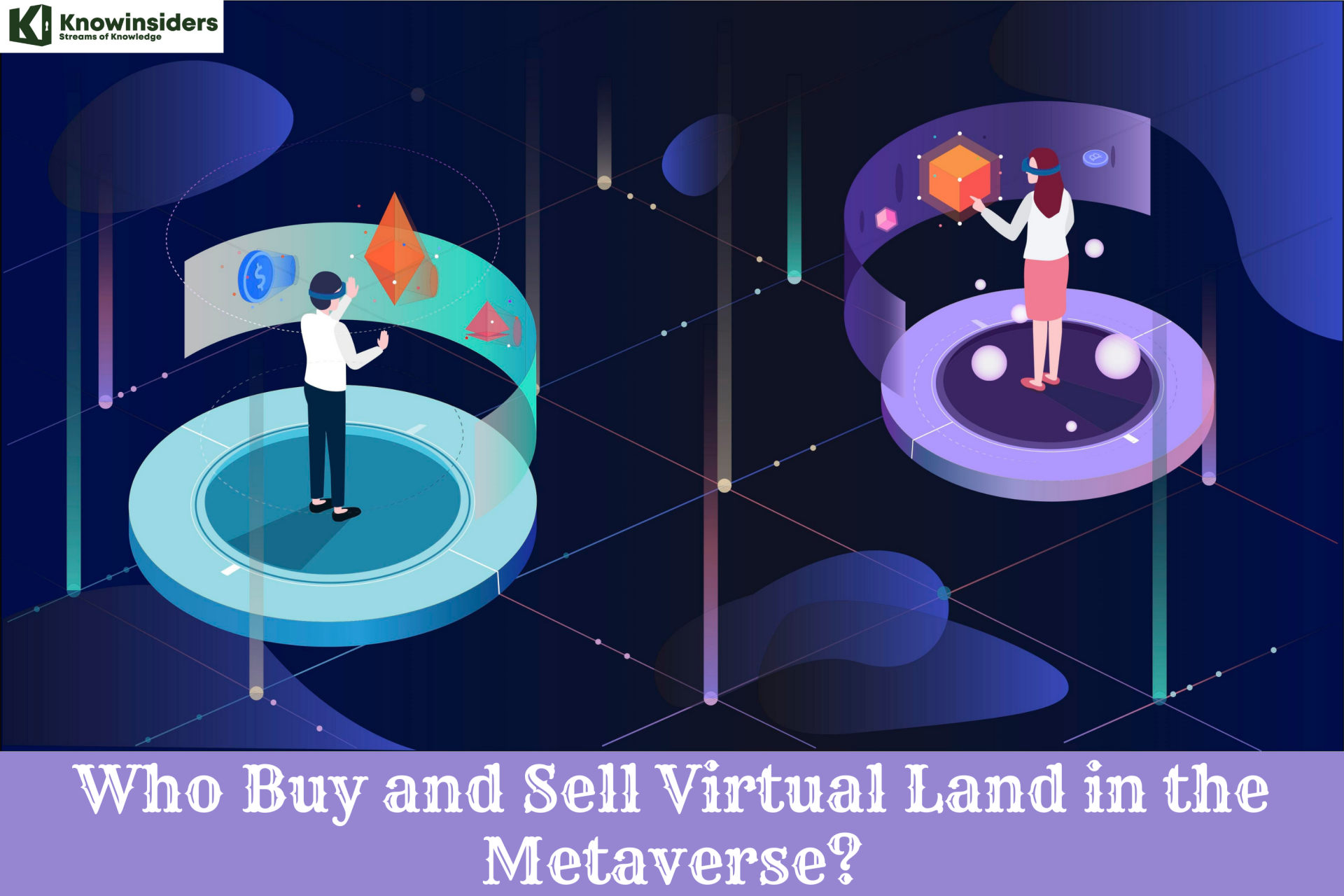 |
| Who Buy and Sell Virtual Land in the Metaverse? |
The idea of investing in a piece of land owned virtually would've sounded absurd a couple of years ago. Today, virtual real estate sells for hundreds of thousands of dollars of cold, hard cash (though converted into cryptocurrency). As the metaverse looms upon us, investors and crypto enthusiasts are going all in, and buying virtual real estate is the next big thing after digital artwork.
You'd be surprised to know that the virtual real estate market shares more than a few similarities with its real-world counterpart, especially the factors governing pricing. So who should buy virtual land and who buy it? Read on to know!
What are virtual lands in the Metaverse?
Virtual lands are envisioned as spaces where anyone can go and hang out with their friends via a monitor or through their virtual reality headset.
Virtual lands are literally digital plots of land existing in a 3D online space — one in which users can log into and experience an immersive world through their online avatars via a monitor or VR headset. Virtual lands have various pros and cons depending on a user’s metaverse of choice. For instance, some metaverse properties might exist on ideal grassy terrain with a view, while others might exist next to a virtual shopping mall where players tend to gather.
Eventually, enthusiasts expect metaverse real estate properties to support virtual houses, where users can build whatever they’d like, similar to the game The Sims. With metaverse properties, users are expected to decorate their homes to create their ultimate hang out, inviting over friends from anywhere in the world.
Event brands also utilize virtual land to organize house concerts, or product release events, which they claim are especially vital during the COVID-19 pandemic. A virtual concert has no population limit and enables people to gather and enjoy their favorite artists without worrying about space or safety.
The popularity of Real Estate in the Metaverse
To buy the cheapest virtual land in the metaverse you have to identify how the metaverse has become a dominant force. Metaverse real estate has already turned out as a huge independent sector. You must be familiar with the Bitcoin and NFTs’ situation where early investors got high returns, similarly, in the virtual real estate space, the early birds will reap promising returns. How? You can find the answer by reflecting on “how much does metaverse land cost” now. For example, you could have purchased the smallest plot of virtual land on Decentraland metaverse or the Sandbox at almost US$1000 a year ago. As of now, the same piece of virtual land costs around US$13,000. Now you see the difference? What is so special about virtual land?
How do you buy and sell virtual land?
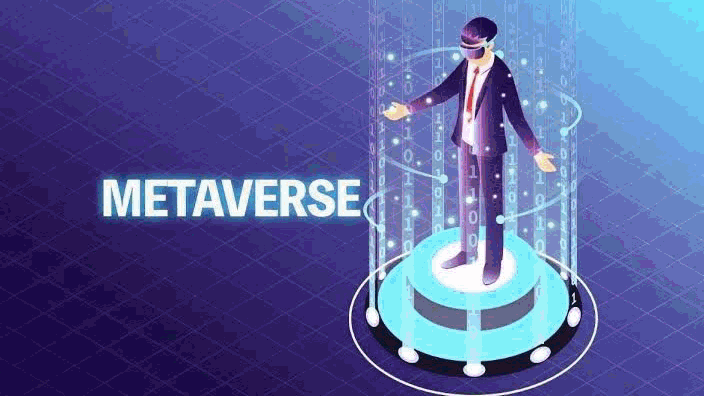 |
| Photo: makeanapplike |
It's not difficult to buy and sell digital assets in the metaverse. Most metaverse platforms can be accessed easily with a desktop computer, making it very simple to inspect virtual real estate before you make a purchase decision.
Once you've chosen a piece of virtual real estate, you can research it on one of many third-party reseller platforms, like OpenSea.io or NonFungible.com. These sites can show you sales history, if any exists, and allow you to do the same for nearby properties that might serve as decent comparables.
You'll need to open a digital wallet that can hold your digital assets, including the cryptocurrency you'll be using to make your purchase. The wallet you choose will depend on the metaverse platform you're using. Each site will explain which are preferred and how to link them.
You must also purchase the amount of cryptocurrency you'll need for the real estate transaction. For example, if you're buying in Decentraland, you'll need to purchase MANA coins. If you're buying in The Sandbox, you'll want to stock up on SAND. These can all be purchased on open cryptocurrency exchanges using your local currency or other cryptocurrencies.
Unlike a real-world real estate transaction, the purchase itself is almost anti-climactic. Once you have your digital money in your digital wallet, you simply go to the platform's marketplace or a third-party site and click the button to buy. It takes a few seconds for the platform to verify the transaction, which includes checking that your wallet contains enough currency and that the property can be conveyed to you legally.
With those checks complete, the money comes out of your wallet and an NFT representing your purchase goes into it. An anonymous identifier that is connected to your wallet and belongs to you alone is recorded as the new owner of the property.
It works essentially the opposite way to sell virtual property. You'll list your property for sale, and someone else will do the clicking and go through verification before their crypto is traded for an NFT, and your wallet will trade one NFT for a pile of crypto -- at a profit, with any luck!
Can anyone buy land Metaverse?
Celebs are buying land in Metaverse
For the last few months, the metaverse is getting a lot of attention. Because metaverse is considered the next step of digitalization. A technology that is a combination of augmented reality (AR), virtual reality (VR), and video. Ever since Facebook announced it would change its name to Meta and focus on building its digital world, interest in metaverse real estate skyrocketed. Several celebs and brands like Gucci, Snoop Dogg, Daler Mehndi, Warner Music Group, and more have already bought land in the metaverse. But choosing the right virtual land comes down to many of the same factors as choosing the right real-world real estate: Location, usage, and long-term potential are crucial considerations when choosing a platform and a parcel. This article features why real estate in the metaverse is popular these days and how one can buy virtual land in the metaverse.
Investors are spending millions on buying virtual lands
Investors are betting on a digital future where everyone will own a virtual plot of land.
Investors spend millions on virtual lands because they believe the future is digital. These companies expect people to flock to virtual properties by the millions and invest in virtual land for sale while expecting a potential return on investment. This method is very similar to real estate investments in the real world, where investors buy up land in developing areas only to sell it back later when the value has increased.
Furthermore, according to a report by crypto asset manager Grayscale, digital asset inventories are likely to reach $1 trillion shortly. Therefore, investors want to hoard pieces of virtual land similar to stocks and traditional real estate.
Who sells the virtual land in Metaverse?
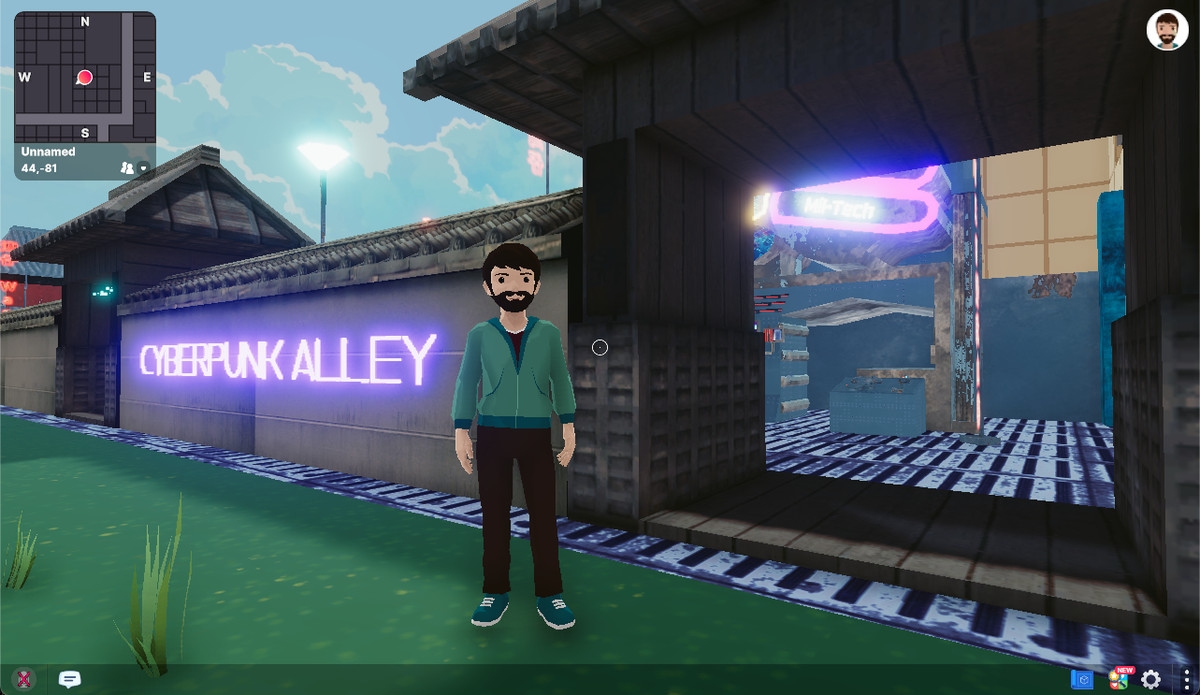 |
| Photo: vox |
Metaverse real estate agencies claim to facilitate virtual land ownership despite the investor’s lack of knowledge in the space.
Some virtual real estate investors utilize metaverse real estate agents to find a property that fits their financial needs. After all, not everyone investing in this world is interested in actually living on and developing their properties in the metaverse. Some simply want to invest in land and flip it for a profit later on.
Metaverse agents and agencies claim to offer virtual real estate exposure without the potentially overwhelming aspects of crypto, such as managing various wallets and blockchain networks. These virtual real estate agencies facilitate the buying and selling of virtual real estate, development of said land, consultations and more. It’s even possible to rent virtual land — an ideal concept for event hosting purposes, among other benefits.
While some investors allege a metaverse real estate agency assisted them in finding and managing valuable virtual land, it’s worth noting that this space is still a speculative one. Many of these agencies operate in a legal gray area, meaning there’s little you can do if the agency fails to help you or wastes your money.
What is the price of virtual land in the metaverse?
The virtual land market in the “big four” metaverses - namely, Decentraland, Somnium Space, Cryptovoxels and Sandbox - topped €440 million in 2021, and that figure is projected to double in 2022.
The Sandbox metaverse is currently the land sale record holder, having sold a plot of land for €3.8 million in a single transaction last December.
But is the market overheating? Even some of the founders of these metaverses are cautioning against the inflated prices that plots of land in their virtual social worlds are fetching.
Speaking to Euronews Next, CEO and founder of Somnium Space, Artur Sychov, lamented the influx of financial speculation driving up prices in the ecosystem.
“There is a lot of hype and there are a lot of, unfortunately, players in the market which try to take advantage of people,” said Sychov.
“There's a lot of people who don't understand why they're buying and they're trying to speculate on it, which is an absolute no go and they should never do that”.
According to Sychov, investors buying up virtual land NFTs in order to eventually turn a profit on them as the prices climb go against the spirit of virtual social worlds, which should be about creators, building communities, sharing art and sharing experiences in virtual space.
“The bubble - and I have to say, the media is also complicit in it because the articles or the news videos, they don't go into depth and into details, right? They just mention the prices because it's a very catchy thing to mention and I understand,” he said.
“But it creates this kind of bubbly thing where people say, ‘Oh my god, OK, there's an ability to earn some money and I will buy this parcel. Whatever that parcel is, I would never even build [on it or] take care of it. I’ll just buy it and hope that I will sell it later for a higher price”.
Before Meta’s splashy announcement of their intentions to build a metaverse bumped the idea of virtual social worlds to the top of the news agenda, the idea behind selling virtual land parcels was that it would give participants in the various communities the opportunity to build within the world and enhance the overall experience for users.
As Somnium Space is a partially decentralized, blockchain-based virtual world whose land parcels are traded on marketplaces like Parcel and OpenSea, or sold at auction, Sychov has little control over prices dictated by market demand.
Real estate in the metaverse is booming, but will it last?
It’s no secret that investors are spending millions on metaverse real estate. But one must wonder if these investments are based on a fad.
While there has always been speculative interest in metaverse properties, since projects like Decentraland launched, interest shot up upon Facebook’s name change to Meta. The social media entity has certainly faced some controversy, but there’s no denying its potential easy access to metaverse content with its consumer-priced Oculus VR headset.
In November 2021, the Metaverse Group, an NFT-based real estate company, invested $2.43 million to expand into the digital fashion industry. Early 2022 saw Microsoft invest $68.7 billion into Activision Blizzard, one of the largest gaming enterprises in the world, in a push for its metaverse over the coming years. Even Apple is getting involved, with CEO Tim Cook revealing that the trillion-dollar business sees “a lot of potential in this space and are investing accordingly.”
Each of these groups is sure to explore virtual lands alongside their other metaverse plays. It’s impossible to predict exactly how everything will play out, and big businesses have been wrong before, but there’s no denying just how much money is being pushed into the metaverse vision.
How does the value of virtual land increase?The value proposition of virtual land works similarly to the real world. High-value properties are often near shops and activities, in which people will pay higher rent to live by. Of course, the value of virtual land only increases if areas develop and people get involved in the metaverse. This prospect is why there are many skeptics of such an investment. The millions of dollars worth of investments into virtual land is all a risk, but it’s not an unfounded one. After all, celebrities and stars are buying virtual land for all sorts of reasons. Some celebrities, like Snoop Dogg, are buying land to get ahead of the trend or because they think it’s fun. Others, such as the Winklevoss Twins, invest in land for educational purposes — to build exhibits that teach others about crypto and the metaverse as a whole. From there, fans have the opportunity to buy metaverse properties next to their favorite stars and will pay top-dollar to do so. Those interested in virtual real estate investing are betting on the possibility of their land becoming more valuable over time, hence their bullishness toward virtual land as a whole. If you’re wondering why some believe metaverse is the biggest investment opportunity, appreciation in land value is one of them. In fact, in some realms such as PolkaCity, property owners are earning passive income through annual interest rates. Unfortunately, to some, passive income isn’t a feature in all metaverse projects, and it’s always a risk to invest in an asset expecting profits later on. This variety of income methods is all the more reason to do in-depth research before investing. |
 Why Many Investors Are Paying Real Money For Virtual Land Why Many Investors Are Paying Real Money For Virtual Land With the metaverse and virtual world are becoming more and more popular, here is why so many investors are putting their money into the virtual ... |
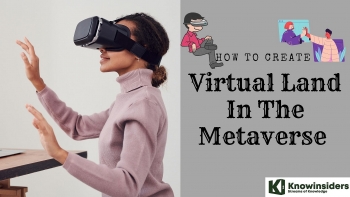 How To Create Virtual World and Virtual Land with Simple Steps How To Create Virtual World and Virtual Land with Simple Steps With virtual land and Metalverse becoming more real and popular every day, and slowly gaining a lot of attention, here is what we know about ... |
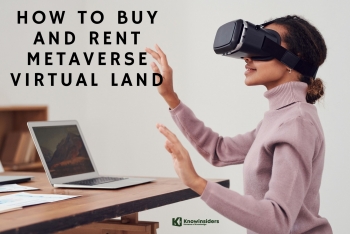 How To Buy And Rent Metaverse Virtual Land How To Buy And Rent Metaverse Virtual Land The process of buying and selling Metaverse Virtual Land (digital real estate) is quite similar to the buying and selling of Bitcoin because it’s not ... |























